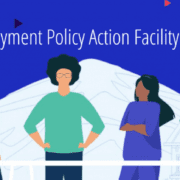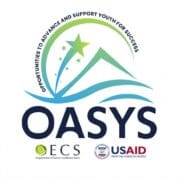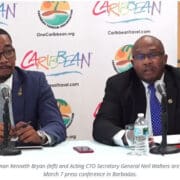ILO launches innovative platform to strengthen policy action for full employment
Black Immigrant Daily News
A new web-based platform that provides easy access to cutting-edge employment policy expertise has been launched by the International Labour Organization (ILO).
The Employment Policy Action Facility (EPAF), is a comprehensive platform that brings together the ILO’s latest evidence, expertise and policy advice. It offers innovative tools, including a curated list of key resources relevant to different stages of the policy action process.
Ensuring the gender-responsiveness of employment policies – a guiding principle of the ILO’s core approach – is a cross-cutting theme of EPAF. The platform mainstreams a gender perspective, including gender-responsive employment diagnostic guidelines and gender-sensitive pro-employment policies.
The EPAF comprises of two sections. The Employment Diagnostic Toolbox gives access to key ILO tools, resources, and guidance on country analytics, to support evidence-based policymaking.
In addition, the Employment Policy Design Lab showcases the ILO’s approaches and good practices that can support policymakers throughout the policy cycle, including design, implementation, financing, monitoring and evaluation. It also offers information on pro-employment macroeconomic policies and budgeting, employment services to support jobseekers, youth employment, and job-rich and just green transition policies.
“The value of ILO’s expertise is measured in the action it can deliver in countries that we serve. I am proud to launch the Employment Policy Action Facility that will help to bridge the gap between technical support and policy action that can make a difference in people’s lives,” said Mia Seppo, the Assistant Director General for Jobs and Social Protection at the ILO. “The launch is also very timely as the ILO is now working to implement the UN Global Accelerator on Jobs and Social Protection for Just Transitions in countries and the EPAF has much to offer to support this collective initiative at the crucial juncture of global economy and labour markets.”
“The EPAF allows us to present ILO resources in an efficient way that makes them easily accessible for those who make the action happen. Combining existing knowledge and tools with the latest developments in one place summarizes the service offer of EPAF,” said Sangheon Lee, Director of the ILO’s Employment Policy, Job Creation and Livelihoods Department. “We hope the EPAF will stimulate further policy innovation and action towards productive and decent work for all. The facility will be continuously updated with the latest resources. We look forward to engaging with our constituents in a demand-driven manner, to help them make full use of the EAPF’s resources.”
Donate At Caribbean News Service, we do not charge for our content and we want to keep it that way. We are seeking support from individuals and organisations so we can continue our work & develop CNS further.
NewsAmericasNow.com











